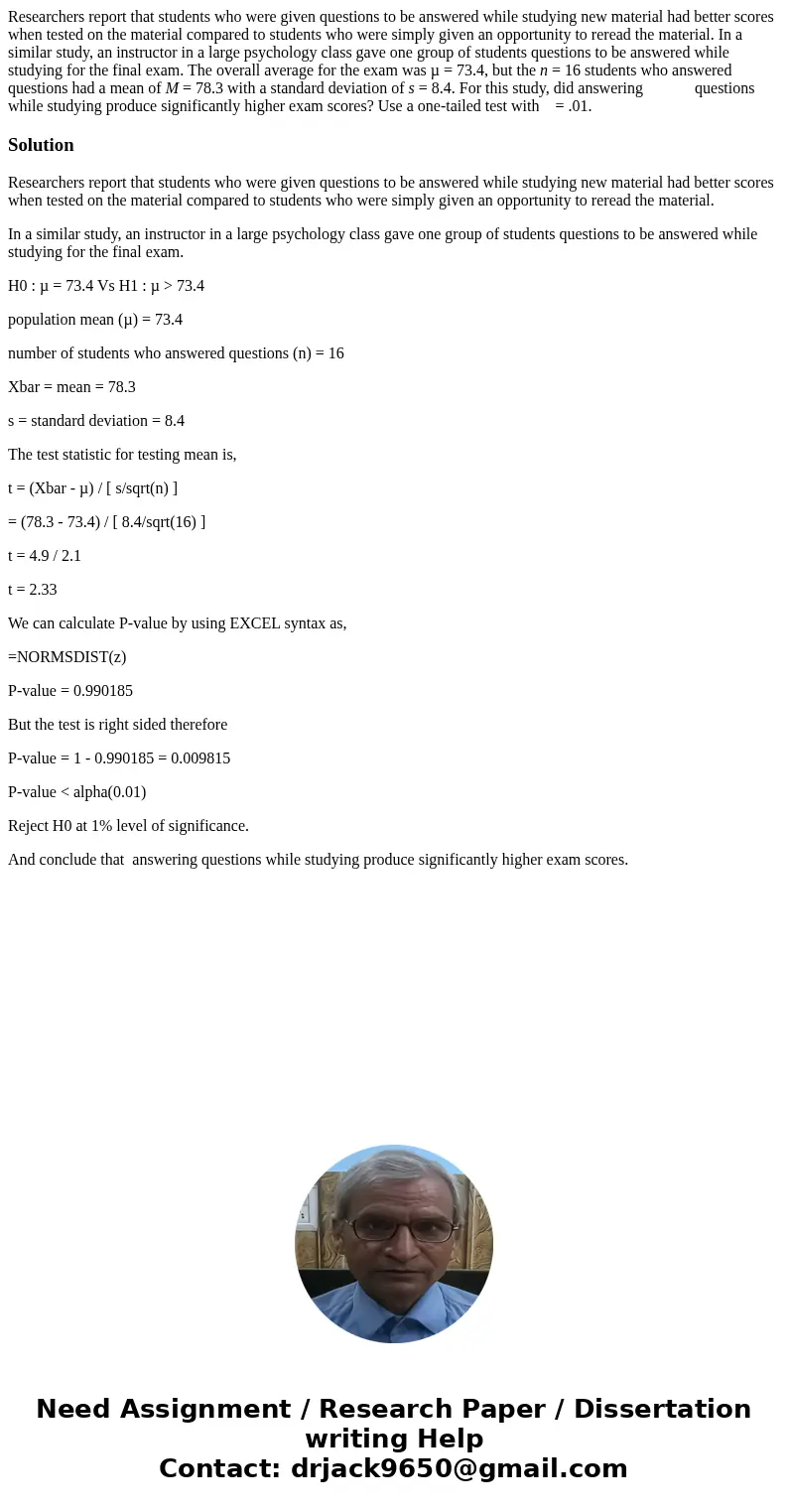Researchers report that students who were given questions to
Researchers report that students who were given questions to be answered while studying new material had better scores when tested on the material compared to students who were simply given an opportunity to reread the material. In a similar study, an instructor in a large psychology class gave one group of students questions to be answered while studying for the final exam. The overall average for the exam was µ = 73.4, but the n = 16 students who answered questions had a mean of M = 78.3 with a standard deviation of s = 8.4. For this study, did answering questions while studying produce significantly higher exam scores? Use a one-tailed test with = .01.
Solution
Researchers report that students who were given questions to be answered while studying new material had better scores when tested on the material compared to students who were simply given an opportunity to reread the material.
In a similar study, an instructor in a large psychology class gave one group of students questions to be answered while studying for the final exam.
H0 : µ = 73.4 Vs H1 : µ > 73.4
population mean (µ) = 73.4
number of students who answered questions (n) = 16
Xbar = mean = 78.3
s = standard deviation = 8.4
The test statistic for testing mean is,
t = (Xbar - µ) / [ s/sqrt(n) ]
= (78.3 - 73.4) / [ 8.4/sqrt(16) ]
t = 4.9 / 2.1
t = 2.33
We can calculate P-value by using EXCEL syntax as,
=NORMSDIST(z)
P-value = 0.990185
But the test is right sided therefore
P-value = 1 - 0.990185 = 0.009815
P-value < alpha(0.01)
Reject H0 at 1% level of significance.
And conclude that answering questions while studying produce significantly higher exam scores.

 Homework Sourse
Homework Sourse